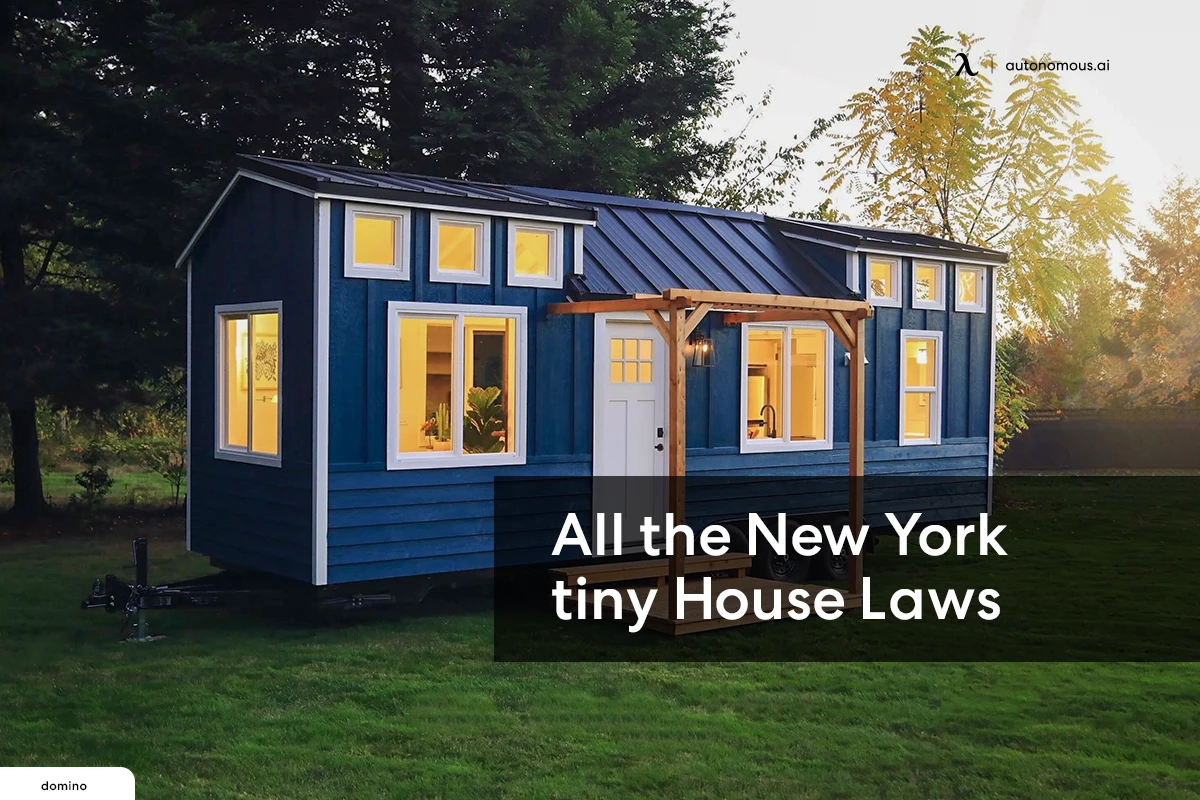
ADU in New York: Regulations, Types, and Permits
Table of Contents
Tiny homes are helpful in terms of minimum space utilization and a suitable way to minimize living expenses. Moreover, building and maintaining tiny homes is also environmentally friendly, which is a more significant reason why many states are promoting and facilitating the building of tiny homes. While we talk about tiny houses being legal, they are allowed legally in all 50 states, but each state has specific rules and laws.
In this article, we will cover the New York tiny house laws, so you are aware of all you need to know about building a small backyard guest house or working on those studio office sheds without legal trouble. So let’s read on to find out!
Types of ADUs to Know
In the bustling state of New York, unlocking the potential of your property through ADUs is not just a possibility; it is appreciated by New York ADU law. In this comprehensive guide, we'll delve into ADU permits, ADU requirements, and ADU building requirements, providing you with the knowledge you need to navigate the world of accessory dwelling units in the Empire State. Whether you're a homeowner looking to expand your living space or an investor seeking opportunities, understanding these key elements is your gateway to success.
- Conversion ADU: A conversion ADU is created by converting an existing space on the property, like a garage, basement, or attic, into a separate living unit. Conversion ADUs are a popular option for homeowners who want to add an ADU to their property without having to build a new structure.
- Attached ADU: This kind of ADU is connected to the main house. Attached ADUs can be constructed as an extension of the main house or as a separate building that is attached to the main house. The attached ADUs are a good option for homeowners who want to keep their ADU close to the main house for convenience or security reasons.
- Detached ADU: This is a standalone building apart from the main residence. Detached ADUs may be constructed anywhere on the land, provided that they adhere to any applicable municipal setback regulations. For homeowners who require a bigger ADU or who wish to provide their ADU occupants more solitude, detached ADUs are a viable alternative.
- Junior Accessory Dwelling Unit (JADU): A Junior accessory dwelling unit is a small ADU that is located within the main house. JADUs are typically limited to 800 square feet in size. JADUs are a good option for homeowners who want to add an ADU to their property without having to build a new structure or who need a smaller ADU for a single person or couple.
Accessory Dwelling Units (ADUs) and tiny homes have become popular housing options due to their affordability, flexibility, and reduced environmental footprint. While they share similarities, they serve different purposes and come with distinct legal, spatial, and functional characteristics. This table outlines the key differences and similarities between ADUs and tiny homes to help you decide which might be a better fit for your needs.
| Feature | ADU (Accessory Dwelling Unit) | Tiny Home |
|---|---|---|
| Definition | A secondary housing unit built on the same lot as a primary residence | A small, standalone home usually under 400 sq. ft. |
| Size | Typically larger than tiny homes, often 500-1,200 sq. ft. | Generally 100-400 sq. ft. |
| Foundation | Permanent foundation required | Can be on wheels (mobile) or a foundation (stationary) |
| Legal Requirements | Permitted as an add-on to a main residence | Laws vary widely; often classified as RVs or sheds |
| Zoning | Subject to local zoning laws, often limited to single-family zones | May face zoning challenges due to non-permanent status |
| Cost | Typically more expensive due to land and permit costs | Usually lower cost, but depends on materials and design |
| Utilities | Shares utilities with main residence or independent setup | Independent or shared; RVs may use tanks for utilities |
| Primary Use | Often used for rental income, guest housing, or family residence | Ideal for full-time residence, travel, or minimal living |
| Financing Options | Easier to finance due to ties to a main residence | Limited financing; personal loans or RV loans possible |
| Ownership Flexibility | Tied to the primary property, can't be sold separately | Can be moved and sold independently if mobile |
| Environmental Impact | Relatively low due to shared land use | Generally low; smaller size and fewer resources used |
Accessory Dwelling Unit New York State Laws
Small houses in New York, also known as accessory dwelling units or ADU, are legally allowed. While this is excellent news for people residing in New York and planning to work on guest house plans, you should also know that New York is the least friendly state of the USA regarding New York State multiple dwelling laws. However, it is also essential to understand that the strictness of these laws is to ensure the safety of the building and the residents. Below we have listed the modular ADU laws in New York State that tiny home builders should know of.
1. Ceiling Height
The first law for a tiny home in NYC regards the ceiling height. The state has justified a minimum size for the unit to be allowed to be built and pass as a living or rental property.
- The law states that the minimum ceiling height should be 6 feet and 8 inches for the hallway and bedroom.
- And when it comes to bathrooms and kitchens, the ceiling height requirement is 6 feet and 4 inches.
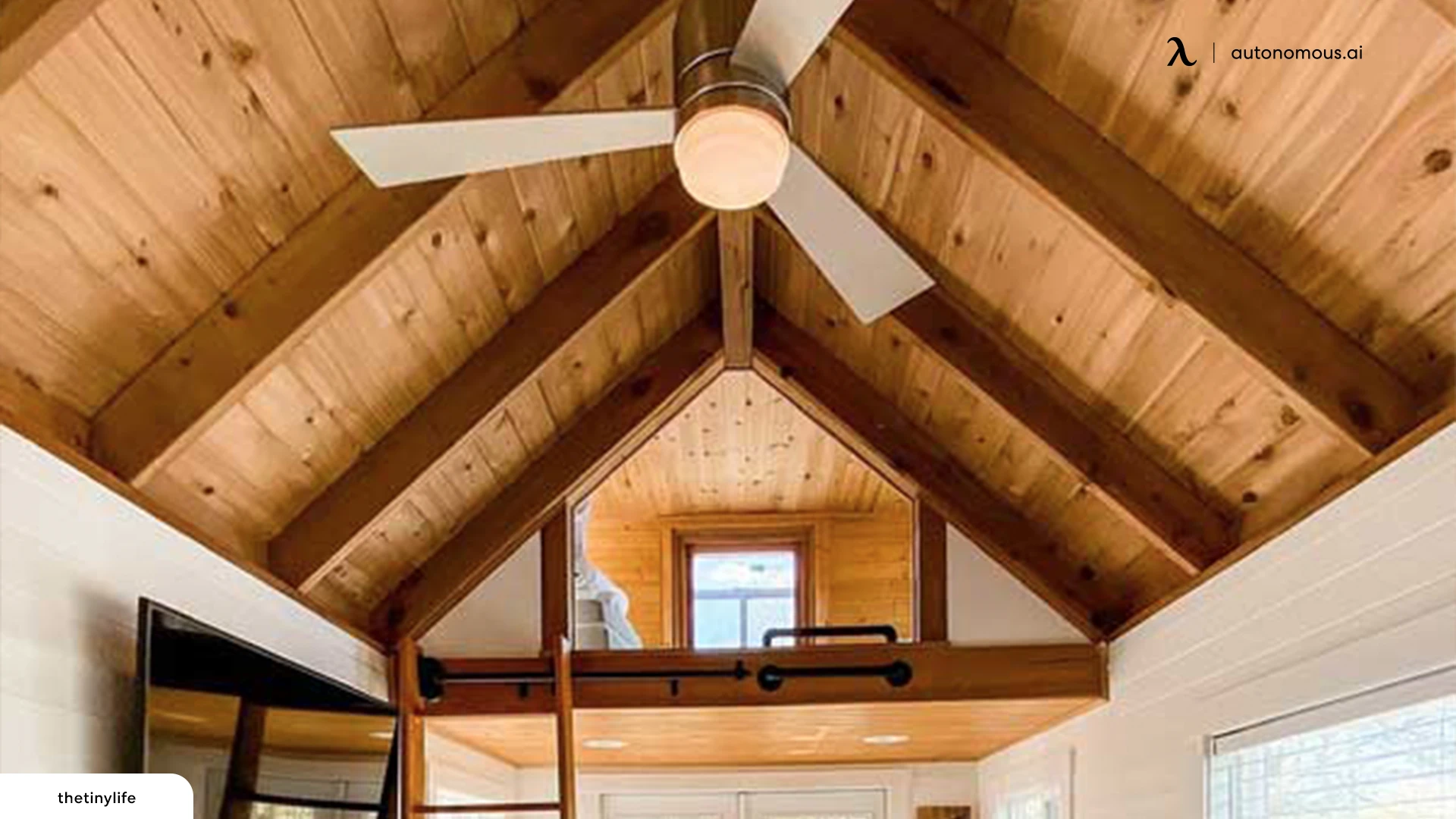
2. Minimum Size
Besides ceiling heights, the minimum size requirement is also crucial to know before building a second property in your backyard.
- For a structure to classify as ADU, the minimum space requirement is 200 square feet, while the maximum space limit is 1500 square feet (If you are planning a three-bedroom living space).
- But if the secondary unit you add is attached to your home, the maximum space limit becomes 50% of the primary residence but at most 600 square feet.
While there is no strict restriction regarding building a tiny house from scratch or purchasing a built-in, many well-known retailers deal in small homes and offer readymade ADUs to be installed. Autonomous ADUs also come equipped with all the facilities as well as compliance to New York City's zonal laws.
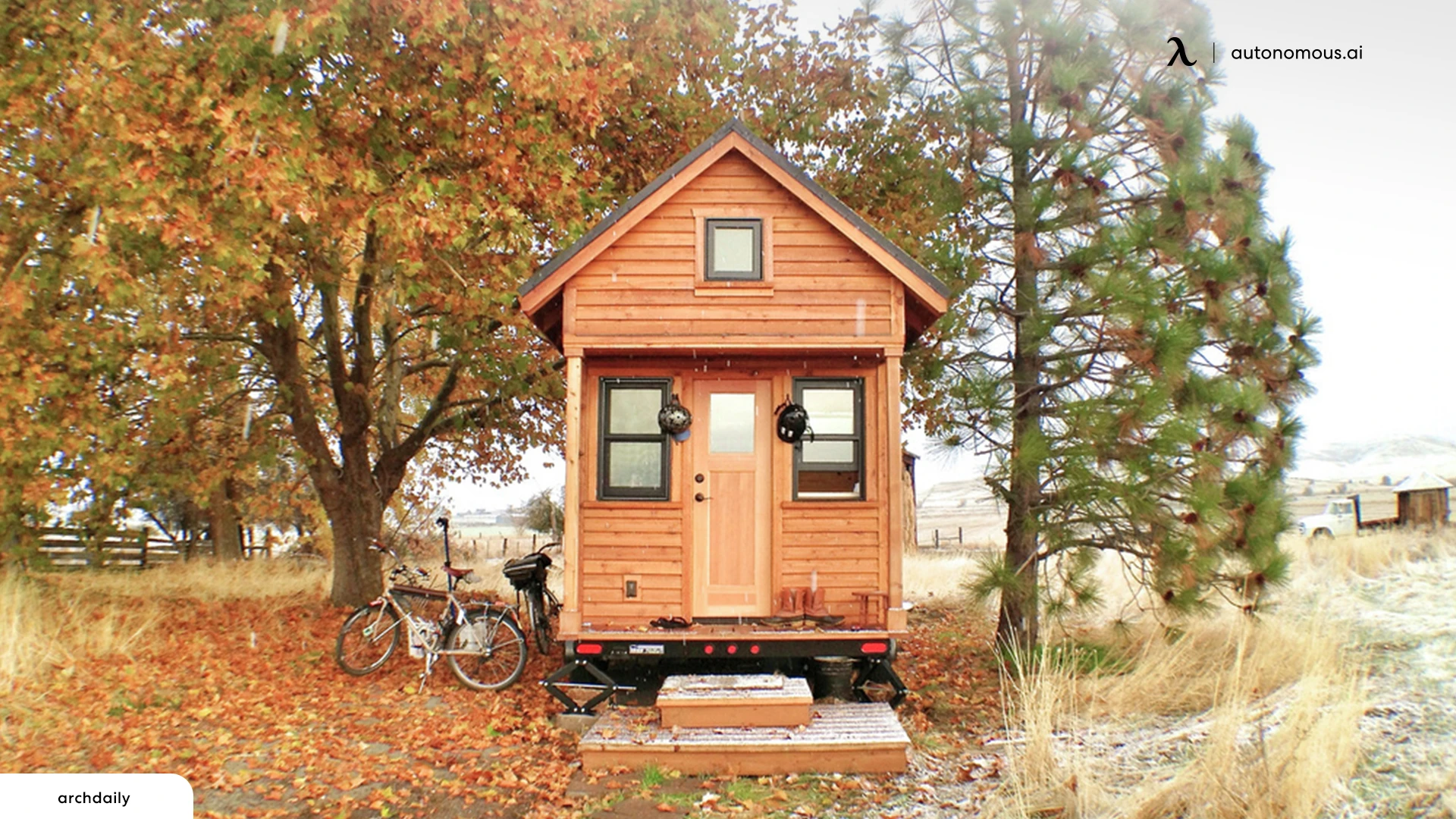
3. Lofts & Space Utilization
Lofts are popular in New York City, offering an affordable and compact living solution. However, they must meet specific minimum size and access requirements:
- Floor area: At least 35 square feet
- Minimum horizontal dimensions: 5 feet in all directions
- Approved access methods: Stairways, ship ladders, or other approved tread methods
Lofts must also comply with fire safety and egress laws to be considered legal living spaces.
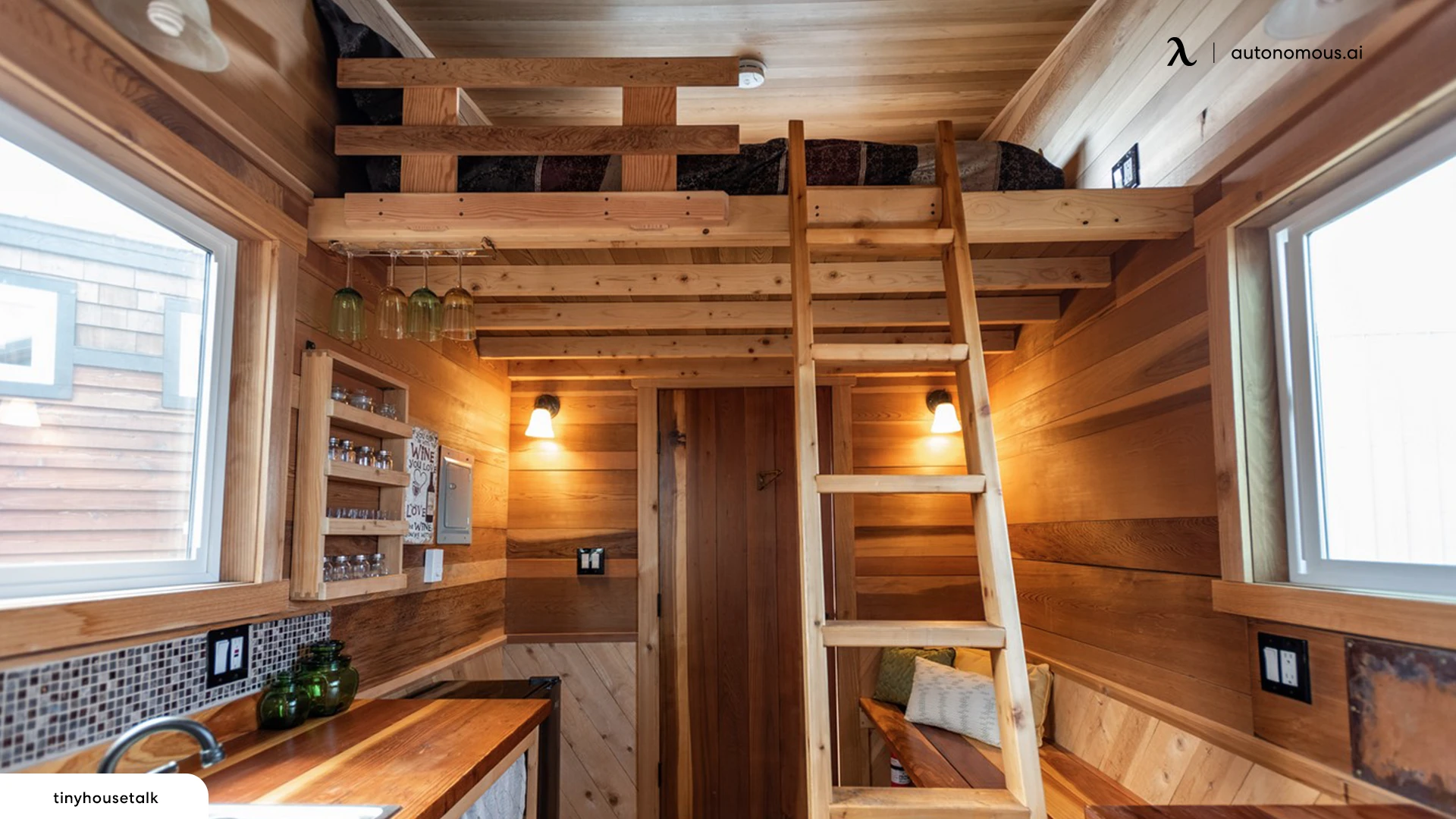
4. Zoning & Intended Property Use
The intended use of an ADU plays a role in zoning approvals:
- Primary residence ADUs: Must comply with strict zoning regulations
- Secondary residence ADUs: More flexible zoning rules apply
- Residential zones: ADUs must generally be built on lots zoned for single-family or multi-family housing
Since zoning laws vary by municipality, check with your local zoning office to ensure compliance.
5. Fire Safety Regulations
Fire safety is a major concern for ADUs in New York. To comply with state laws, an ADU must have:
- A minimum of two fire exits
- Smoke and carbon monoxide detectors installed in key areas
- Fire-rated walls and ceilings (where required)
Failure to meet fire safety codes could result in permit denials or even property shutdowns.
6. Portable Tiny Houses & Recreational ADUs
Tiny homes on wheels (THOWs) are gaining popularity as ADUs in New York. However, they are regulated differently from permanent structures:
Portable ADUs are classified as recreational vehicles (RVs).
Some counties allow carriage houses as legal ADUs if they are:
- At least 10 feet from the main house
- No taller than three stories
Before investing in a tiny home ADU, check whether your municipality allows mobile or prefabricated units.
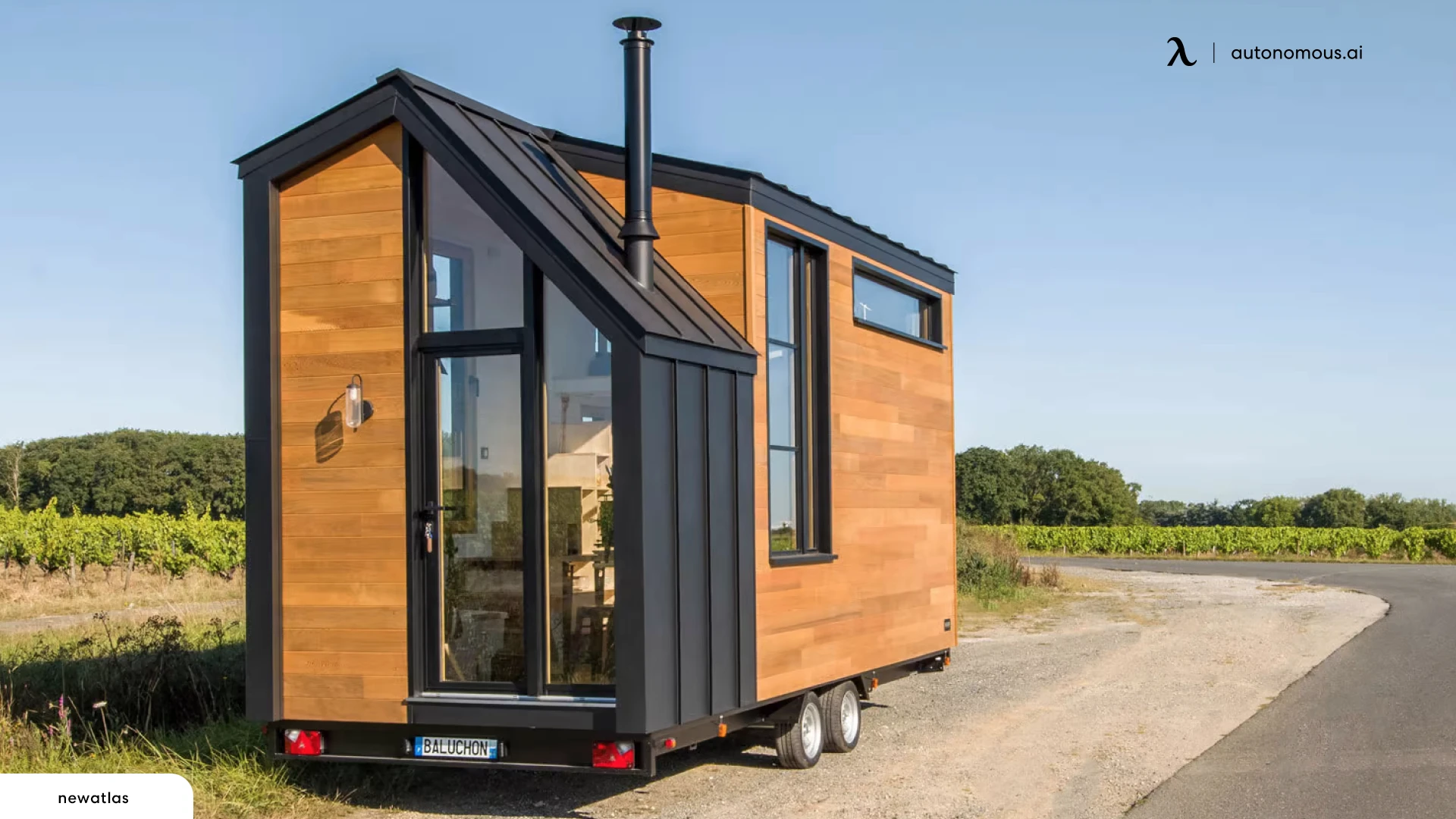
7. ADU Parking Requirements
Unlike many states, New York does not require additional parking for ADUs. This means:
- No parking space is required for detached ADUs
- Garage conversions do not require replacement parking
This makes it easier for homeowners to convert existing spaces without worrying about adding driveways or parking spots.
8. Rental Laws
Many homeowners build ADUs for rental income, but New York restricts short-term rentals:
- Minimum rental period: 30 days
- No Airbnb or short-term vacation rentals
- ADUs are meant for long-term residential use only
Violating these laws can result in fines or legal action, so it's crucial to understand local rental regulations before listing your ADU.
9. New York ADU Setback Rules
Setback requirements vary by municipality, but here are some general guidelines:
- Detached ADUs: Must be at least 4 feet from side and rear property lines
- 2nd-Story ADUs: Must be 5 feet from the front property line and 4 feet from the rear/side lines
Local building departments may have additional setback rules, so always check with your municipal zoning office.
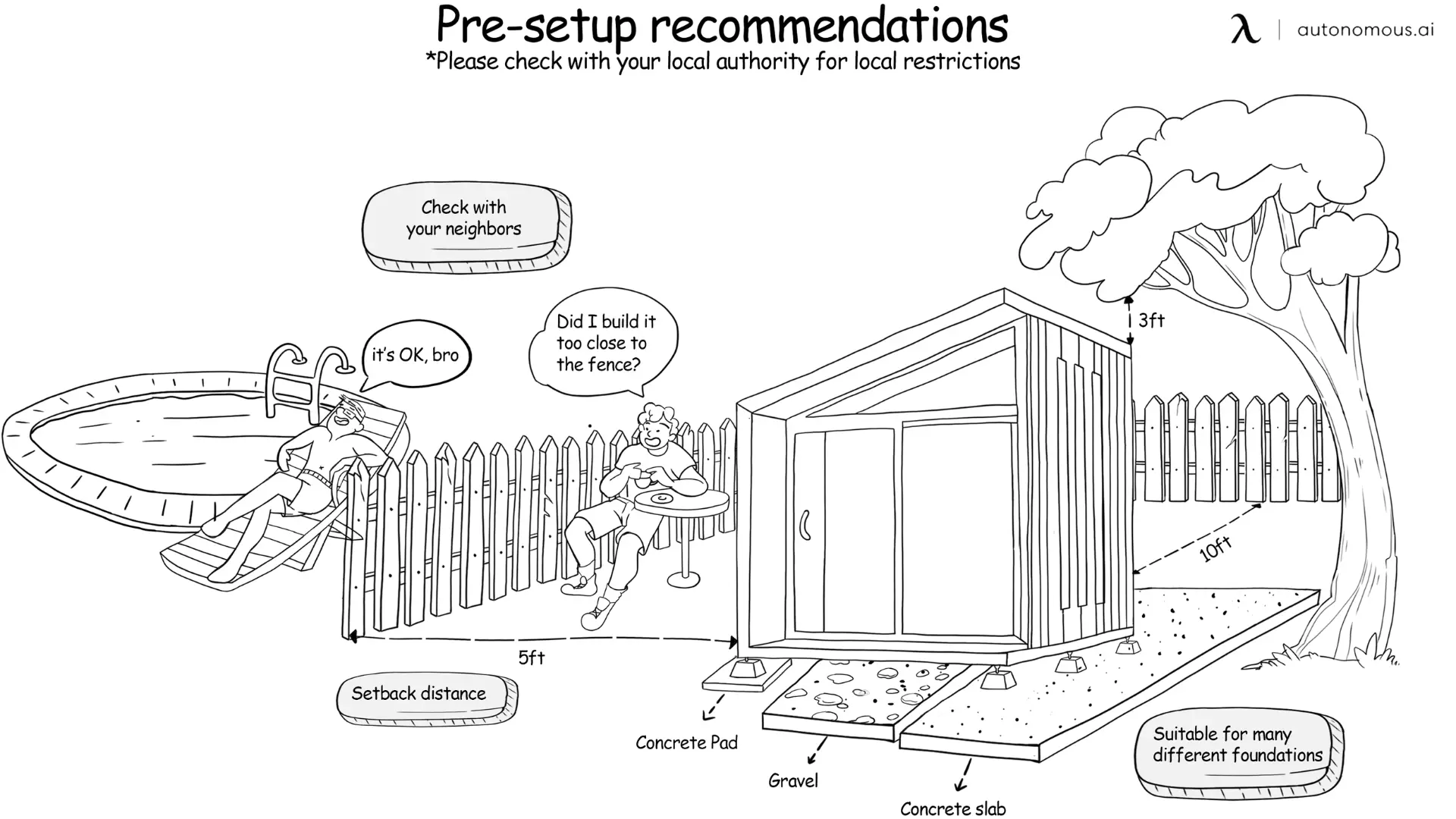
10. Permits and Fees For New York Accessory Dwelling Units
New York State Assembly Bill A4854 makes it easier and more affordable to build an ADU in New York City.
Permits: Under the new law, New York City will issue permits for ADUs on approved lots “ministerially,” which means that city planners must follow state guidelines and cannot individually interpret the rules. The city must approve or deny plans within 60 days of receiving the application.
Fees: Fees for ADU permits will not exceed $1,000.
Utility connection fees: The new law also sets important limits on utility connection fees for ADUs. Utility connection fees must be proportionate to the burden of the unit on the water or sewer system, based on either its size or the number of its plumbing fixtures. This means that cities cannot hinder ADU construction by charging unreasonably high utility connection fees.
These changes will make it easier and more affordable for homeowners in New York City to build ADUs. ADUs can provide homeowners with a source of additional income, and they can also help to increase the supply of affordable housing in the city.
Permit-Free Alternative: Autonomous WorkPods
For homeowners in New York who want an ADU-like space without the hassle of permits, zoning restrictions, or long approval processes, Autonomous WorkPods offer a game-changing solution. Unlike traditional ADUs that require permits, inspections, and setback compliance, WorkPods are freestanding, permit-free, and ready to use in just a few days.
- Permit-Free: No need for complex zoning approvals or costly permit applications.
- Zero Foundation Prep: Easily placed in your backyard with no major groundwork required.
- Fast Setup: Ready to use in as little as three days.
- Weatherproof & Soundproof: Built for year-round comfort and quiet productivity.
- Flexible Use: Ideal for home offices, creative studios, or guest spaces.
WorkPod: A 102 sq. ft. freestanding unit designed for remote work, meetings, or relaxation. Comes with pre-installed lighting, ventilation, and electrical outlets, making it a plug-and-play solution.
WorkPod Versatile: A larger, multi-functional space offering 105 sq. ft.—ideal for those needing a work & play environment. Features extra power outlets, ethernet ports, and a spacious interior.
WorkPod Mini: Perfect for smaller yards and tighter budgets, this 80 sq. ft. unit still delivers privacy, comfort, and a quiet workspace without requiring a building permit.
While traditional ADUs require permits, fees, and zoning approvals, Autonomous WorkPods provide a permit-free alternative that works well for home offices, backyard retreats, or creative studios. Their freestanding design means you can skip the hassle of foundation prep and city permits while still enjoying a dedicated, private workspace.
If you're considering a prefab office pod, the Autonomous WorkPod offers a fast, stylish, and functional solution. For those who prefer an indoor office setup, indoor office pods are a great way to create a dedicated workspace inside the home.
For homeowners prioritizing privacy and noise reduction, a soundproof office pod for home can provide a distraction-free environment for remote work or creative tasks. If you're working with limited outdoor space, a tiny office shed still delivers a functional and stylish setup without taking up too much room.
If you're looking to optimize your backyard workspace, these small shed office interior ideas offer smart design inspiration. A studio office shed is a great solution for those who need a private retreat for work and creative projects. For a fully equipped backyard workspace, a prefab home office provides a ready-made solution with a professional touch.
Understanding the Plus One ADU Program
This new and remarkable program is a New York State initiative that provides grants to low- and middle-income homeowners to build or upgrade ADUs on their properties. The program is designed to increase the supply of affordable housing in the state.
The program is open to partnerships between subsidized housing organizations and local governments. Grantees will use the money to find middle class homeowners who are interested in building or repairing an ADU on their property and help them through the process. They will also be in charge of the project's planning, development, and completion.
To be eligible for the program, homeowners must own and occupy their primary residence and have a household income that is below 80% of the area median income.
This welfare program is a great opportunity for homeowners to build or upgrade an ADU on their property. ADUs can provide homeowners with a source of additional income, and they can also help to increase the supply of affordable housing in communities.
Frequently Asked Questions
Can I build an ADU on my property in NYC?
Yes, but zoning laws and local building codes determine whether an ADU is permitted on your lot. In general, ADUs are allowed in single-family and multi-family residential zones, but requirements vary by borough. It’s best to check with the NYC Department of Buildings (DOB) to confirm zoning eligibility.
Can I build an ADU attached to my house?
Yes, attached ADUs (like basement apartments or garage conversions) are allowed as long as they comply with NYC building codes, fire safety requirements, and zoning laws. The unit must have a separate entrance, proper ventilation, and meet occupancy requirements.
Can you build an ADU in the front yard?
Generally, no. NYC zoning laws restrict ADUs from being placed in the front yard. Most ADUs are required to be behind or attached to the primary residence. Some exceptions may exist in specific zones, so always verify with local authorities.
Can I build a casita on my property in NYC?
A casita (a small detached ADU) may be allowed depending on lot size, zoning, and setback regulations. In many cases, detached ADUs must follow NYC’s accessory structure guidelines, which limit placement and square footage.
Can I build a house in my backyard?
Building a second house (separate from the main home) in a backyard is not typically allowed unless it meets ADU regulations. NYC has strict zoning laws that determine whether a backyard structure qualifies as a legal dwelling unit.
How many ADUs can I build on my property?
In NYC, only one ADU is generally allowed per single-family home. Multi-family properties may have different rules, but every ADU must comply with size limits, zoning laws, and building codes.
Are ADUs legal in NYC?
Yes, but they must meet local zoning requirements, fire safety laws, and utility connection regulations. NYC has recently introduced initiatives like the Plus One ADU Program, which supports ADU construction to help increase housing availability.
Are tiny houses legal in New York State?
Tiny houses are legal in some areas, but they must meet local zoning and building codes. In NYC, tiny homes are often considered accessory structures or ADUs, and they must be permanently affixed to a foundation to qualify as a legal dwelling unit.
How big can an ADU be in NYC?
ADU size limits depend on the property and whether the unit is attached or detached. In general:
- Minimum size: 200 sq. ft.
- Maximum size: 1,500 sq. ft. (for a three-bedroom ADU)
- Attached ADUs: Cannot exceed 50% of the size of the primary residence, with a 600 sq. ft. cap
For detached ADUs, size restrictions vary by lot size and zoning laws, so check with the NYC Department of Buildings before starting a project.
How can I join the Plus One ADU program?
This offer solely exists for economically disadvantaged homeowners. Eligibility includes owning and occupying your primary residence with a household income below 80% of the AMI. Partnerships with non-profit organizations and local governments are eligible.
How do I get started building an ADU in New York?
Begin by contacting your local building department for specific requirements and permits. Consulting with an architect or engineer for design and code compliance is advisable - budget for permits, materials, and labor.
Building an ADU in New York can be rewarding, offering additional income and contributing to affordable housing solutions in your community. For more details and personalized guidance, consult your local authorities and professionals in the field.
Many homeowners in New York are turning to modular ADUs for their efficiency and quick setup. If you're exploring prefabricated housing options, consider reviewing modular home manufacturers in New York to find a builder that fits your needs.
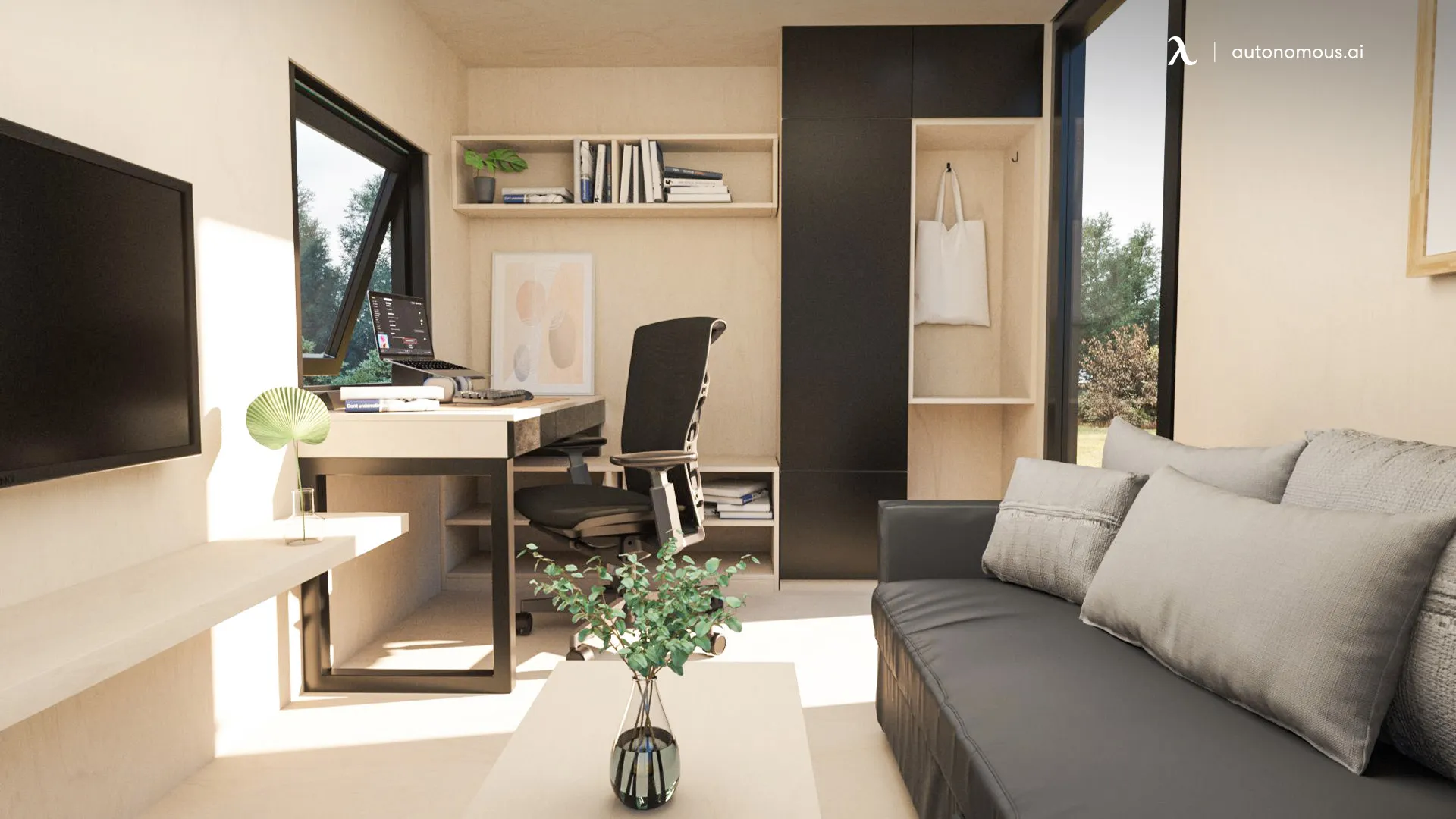
Conclusion
The ADU landscape in New York is changing as a result of programs like the Plus One ADU initiative, affordable fees, and simplified permitting procedures. For homeowners and investors looking to maximize property potential while assisting in housing solutions, it is essential to understand the different types of ADUs, the requirements, and the resources that are available. As you begin your ADU journey, keep in mind to consult local authorities, abide by regulations, and take into account the advantages ADUs can bring to your neighborhood and your property.
Spread the word
.svg)


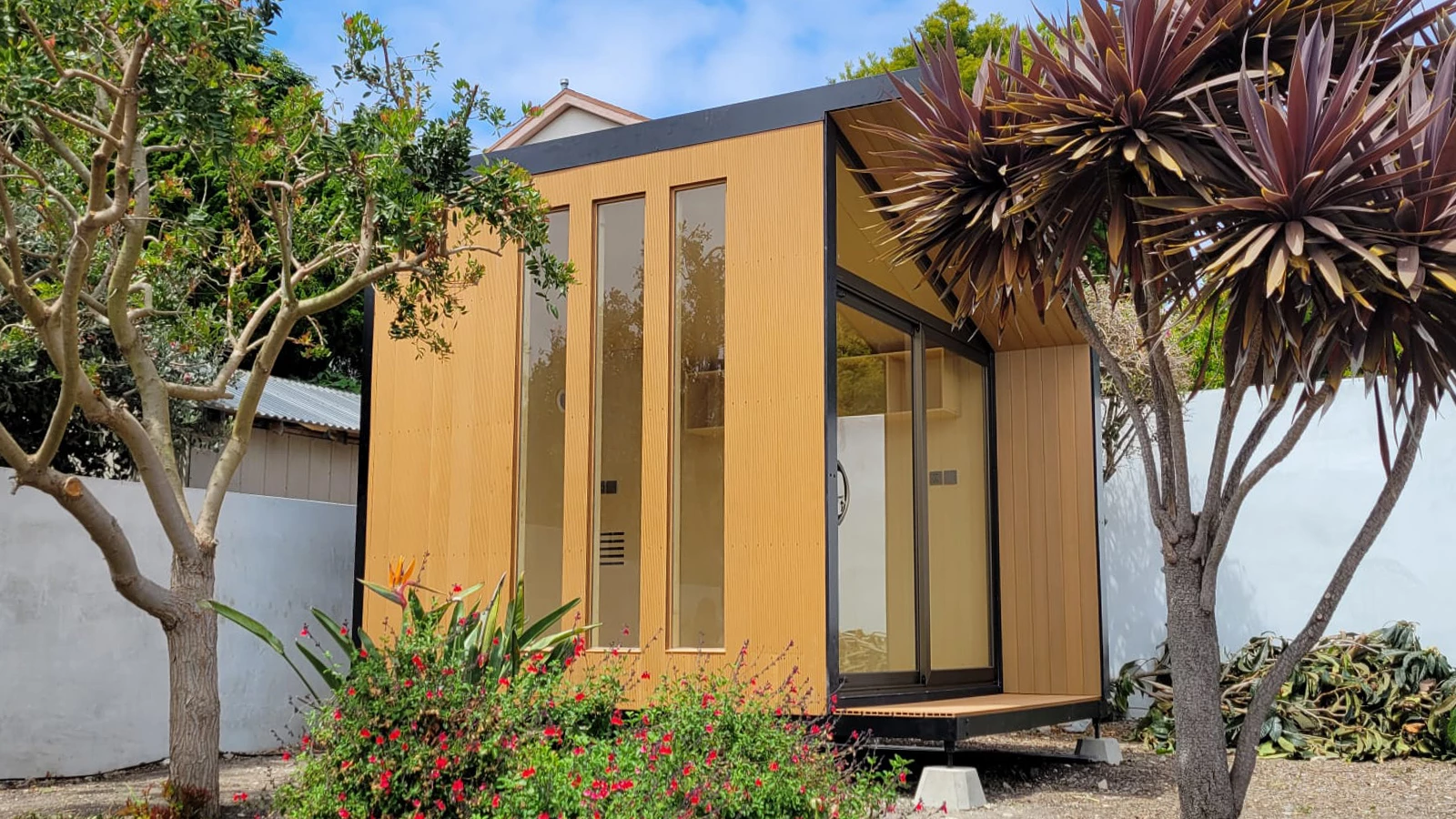

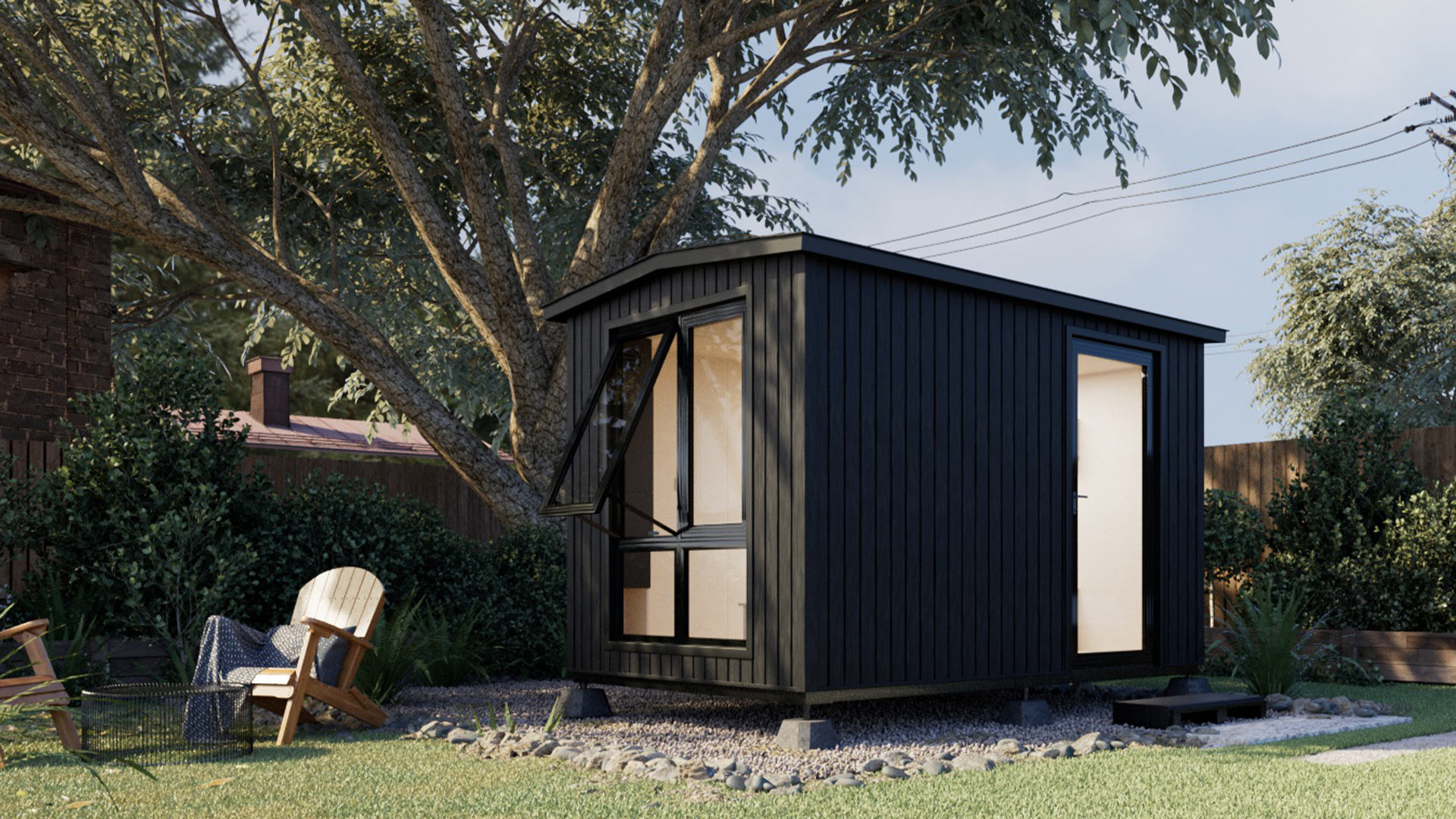
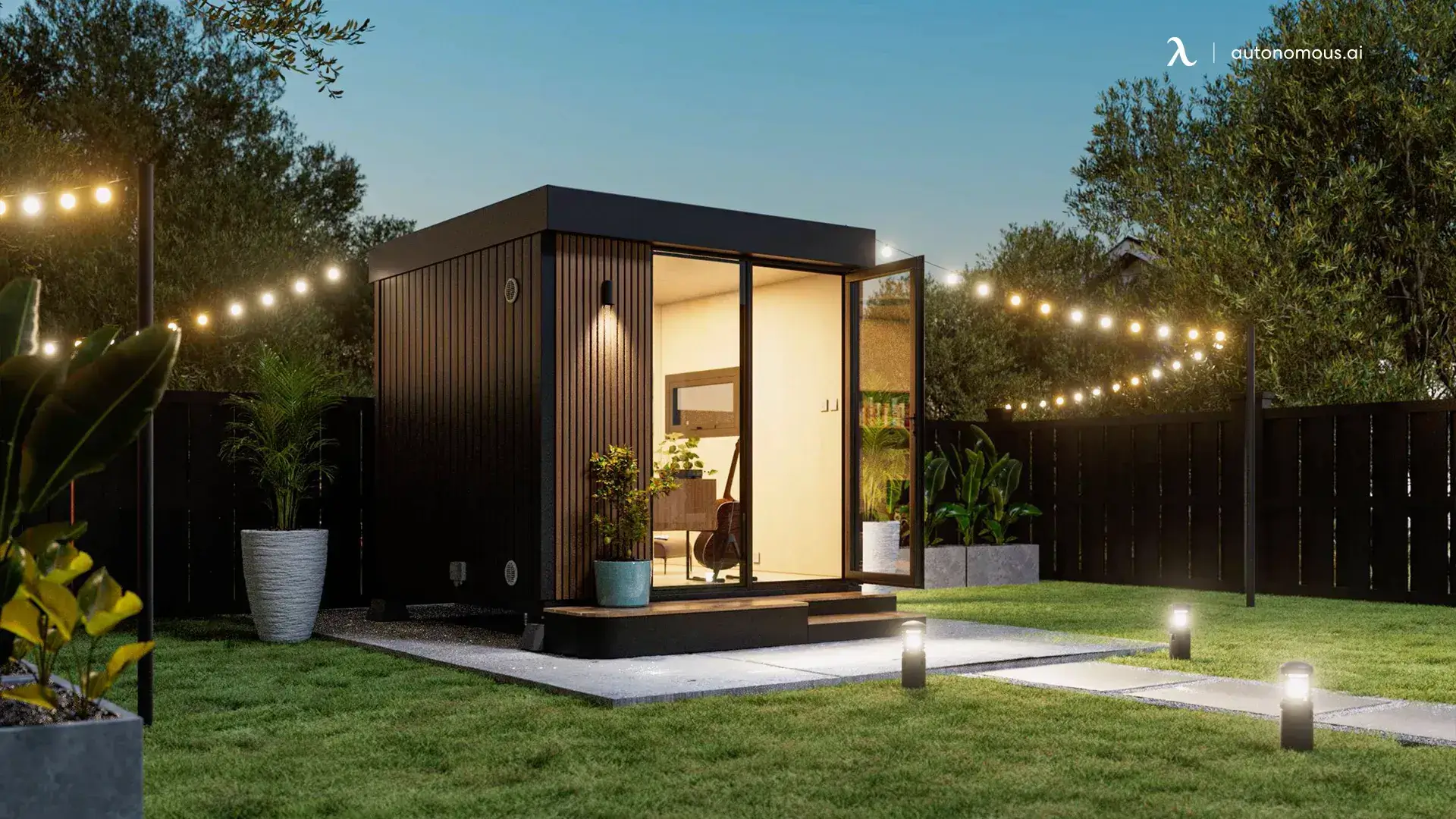
.webp)
.webp)




